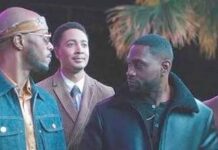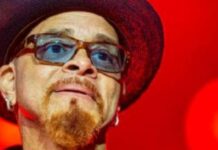*While the media was busy airing the tragic news of the massacre of 49 people in a gay nightclub in Orlando, Florida, — hundreds of miles away, Charleston’s authors were busy opening boxes of their new book, “We Are Charleston.” They were preparing to commemorate the first-year anniversary of “The Emanuel Nine” and address the massacre that shook their own community’s foundation a year ago.
The fatal shooting at Mother Emanuel AME church opened a wound of racism that still remains part of American society. The sin of slavery had festered for centuries and was now revisiting this charming, yet contradicting city, also known as the Holy City. Since then, the church was recently nominated for the Nobel Peace Prize and a decision will be made late 2016.
“The tragedy at Mother Emanuel AME Church affected us deeply,” the authors said in a group statement. “This book is our attempt to honor those whose lives were lost, the survivors and their families by telling their stories in the content of Charleston, the nation’s racial history and the social justice efforts that have been the hallmark of the African Methodist Episcopal Church.”
On June 17, 2015, on a warm summer night, the small, prominent, historical AME church in Charleston was rocked with a horrific tragedy. Dylann Rolf, a young white supremacist hoping to ignite a race war, opened fire on a prayer meeting killing nine innocent African Americans. Before the heart-wrenching tragedy struck the church, few people knew anything about this church. However, Emanuel is the oldest AME church in the Deep South fighting for freedom and civil rights, and the world now recognizes the church and “The Emanuel Nine”.
“We Are Charleston”, is a comprehensive account of last summer’s tragic events at South Carolina’s Mother Emanuel Church. Written by South Carolina-based writers Herb Frazier (award-winning journalist and childhood member of Mother Emanuel), Dr. Bernard Edwards Powers (AME Church member and professor of history at the College of Charleston) and Marjory Wentworth (South Carolina’s Poet Laureate), is based on extensive interviews with family and friends of “The Emanuel Nine” – the church members who lost their lives on June 17, 2015.
Frazier, a journalist and native son, was no stranger to the church. He grew up in the church and sang in the choir; he was also baptized there. In addition, he still has family members that attend the church. “As a kid growing up, it was a very, very welcoming place,” says Frazier. “In the summer, we had Vacation Bible Study and we played baseball in the parking lot. I have so many fond memories in the church, and this was a walk down memory lane.” Now that he is older and understands the history of the AME church and his city, he says he was surprised at the extent of what the church played in the city growing up.
When asked how did they all come together to write the book and why did they see a need to write the book, Wentworth says, “Everyone here wanted to do something to help, and since we are writers we wanted to explain what it was like to be here last summer, but also explain its context to the history of the AME Church and Charleston. Charleston is the cradle of slavery. We felt if we came together, we could have a multi-dimensional story.” Frazier expounded, “We needed to look at the racial history of this city and this state and the country, particularly, the city. We think all of that is what influenced the shooter. If you look at the Civil Rights era, Charleston is not a city that comes to mind.”
Church Survivors
Although the churched worked hard at making sure the church survivors did not feel forgotten, some reports stressed that they felt otherwise. “I think it was a sense of that. A lot happen. Emanuel lost four of their members of the ministerial staff, so the church was lacking their leadership. The attention of the congregation was lacking and some felt overlooked,” says Frazier. “No one really knew what to do. Now, there is a little more stability at the top. Since then, we’ve come back and we have a pastor who is a little more hands on. No one knew what to do. We had not experienced anything like that,” he says. “It was a matter of people who hadn’t even been in the church showing up. They had a small congregation. Many of the people in the church lost friends and family… There were so many levels of pain. Now the church has kind of turned into a shrine. Since then, a government official or celebrity may show up,” says Wentworth.

Accomplishments/Results of the Brutal Act
Besides the residents advocating for and winning the removal of the Confederate flag off the statehouse grounds, the Charleston community began working together to make Charleston and the world a better place to live. In addition, a delegation from Thornton Township, Illinois, traveled to Charleston to announce their decision to nominate Charleston for the 2016 Nobel Peace Prize. On September 15, 2015, township officials, pastors and citizens from the township arrived in Charleston to meet with city officials and the leadership at Mother Emanuel to formally announce the nomination. It was part of their “Faith, Diginity, and Respect Initiative.” “Their goal is to learn about healing from the Charleston community. They also hoped to create a safety plan for the seventeen municipalities in their township in case they experience a similar crisis,” says Frazier.
“The dialogue in racial equity and gun violence is continuing, and it was always going on, but now it’s moved to center stage and discussed more often. The memory of the church and the history of the church and the important role of the church in Charleston have elevated,” says Frazier.
Wentworth added, “The International African-American Museum was in the making and now the money is coming in for that and we’re going to have that. That was something that was in the making and now it’s more prominent and getting more attention. So many things have come out of it. It was almost an erasure of African-American history in the city but that was changed. A lot of the issues are still there but enough is
enough.” Frazier and Wentworth often finished each other’s sentences.
“There has been almost a complete erasure of history here. We still have a lot of work to do,” explains Frazier.
The authors wrote the book in hopes of finding out why this happened. “We wanted to know why it happened. We thought we could bring all of our attention to it and try to understand it. We wanted to honor those who were loss. We wanted to tell stories about the people and its leaders so you can get to know them. Beyond that, they embodied the faith that we all wish we had,” says Wentworth. “The church itself has resurrected itself over and over again, which is essential to the Christian message. We wanted to understand how to come back from all of this.”

The Important Chapters and Forgiveness
Filled with the history of the AME church, profiles of “The Emanuel Nine”, Charleston’s history, and pain and forgiveness, it is hard to decide which chapter in the book is the most important. Frazier quickly says all the chapters are important. “For me, forgiveness is very important,” says Frazier. Wentworth chimes in and says, “To me, it’s a teaching moment for the whole world. Even my house. Even in your own personal life. If you forgive and are guided by love, you have peace inside your heart. I know it sounds kind of cliché’ but when you have peace inside your soul it gives you power to have peace. Wentworth recalls how Nadine Collier, Ethel Lance’s daughter was the first one speaking at the bond hearing and she says. “Forgiveness is power. They no longer have power over you.”
“It’s really complicated. We could have allocated more chapters on ‘forgiveness’ to the book,” says Wentworth.
“The forgiveness that was expressed will even shine a larger light on the city,” says Frazier. “We enjoyed the collaboration, and we think we accomplished what we set out to do. This is another wake-up call for America to address,” says Wentworth. We really, really regret we had to write the book,” says Frazier.
“We Are Charleston” is an emotional, yet touching story of the senseless massacre of June 2015 in Charleston, South Carolina. The distinguished group of authors managed to weave the rich history of Charleston and the role of the historic Mother Emanuel AME Church into a great read that serves as an example of faith and forgiveness to the entire world.
Pick up your copy today…

EURweb associate journalist Angela P. Moore is based in the Atlanta area. A passionate writer-and-photographer-at-heart, she freelances for local and national magazines. She pens articles on celebrity profiles, art, music, business, travel, entertainment, health, self-help, and consumer-related issues. She is also the founder and owner of APM Public Relations. In the realization of her life-long passion for writing, Angela will release her debut book winter 2016. She can be reached via [email protected].
We Publish News 24/7. Don’t Miss A Story. Click HERE to SUBSCRIBE to Our Newsletter Now!






